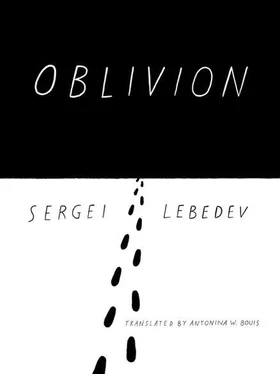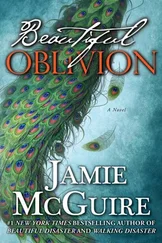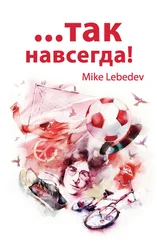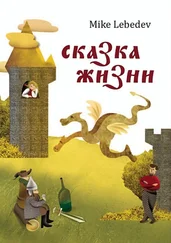Later, when the village stood on fertile soil, some of the exiles were taken to town, that is, to the camp where Grandfather II had once been warden, where they started a botanical garden, planting flowers in heated greenhouses to show how new life was burgeoning in the Far North, and in the polar night prisoners in the barracks could see the glowing glass cubes behind three layers of barbed wire. The garden was part of the camp economy, and the locals hated it for devouring heat and light, a garden for baskets of red flowers to greet official airplanes that instantly turned to glass in the frost; high-ranking guards brought the flowers home later, and anything left over was taken to the statue of Lenin.
A war ensued over the right to work in the garden, in the steamy heat of the greenhouse, and the criminals won; the guards couldn’t do anything about it; the only gardener who knew the job, a former custodian of an arboretum, was soon killed by a live wire, and the garden began to fail; prisoners started eating the flowers, chopping them up with a knife like greens and boiling them in tin cans. The camp administrators, who could not retreat—the botanical garden was now celebrated in the ministry, they promised to send specialists, expand the garden, and turn it into a museum of polar agronomy and gardening—the administrators decided to gather the peasant exiles and staff the garden with them. They simply sent a convoy of guards to the exile village and, without arresting them, the leader picked out ten people to bring back to the camp.
The garden had trees—apple, cherry, plum; in winter they were wrapped in burlap, with straw piled around the trunks, but the burlap and straw were stolen to make clothing warmer; they had to keep a watchman by the trees. They were still too small to bear fruit, so when high-ranking visitors came, fruits were hung on the branches in any season; the fruits were counted, so that the staff would not appropriate any before returning them in compliance with an inventory list.
One time a guest decided to eat an apple and discovered the thin thread that tied its stem to the branch, and angrily threw the small Golden Chinese apple, glowing like a paper lantern, somewhere into the grass; the official was insulted, he had believed with childlike sincerity that he was in a polar paradise where trees bear fruit twelve months a year, and while he was used to human trickery, and an expert on faking reports himself, he was unpleasantly surprised to see that even nature can be involved in deceit. He walked around a few more trees, muttering “I didn’t expect this, I didn’t expect this,” as if the trees had pinned the fruit on themselves like false medals in order to greet him; one of the exiles assigned to the garden later picked up the apple the guest had tossed.
They wanted to eat the apple, it was the first fruit the exiles had held in their hands in many years; they were not trusted to hang the fruits on the trees. The very shape of it—the rounded ripeness—sated their hungry palms that had forgotten everything but tools; the exiles passed around the apple, as if it had just been born in the straw, passed it around and consumed it with their eyes—a case when a metaphor becomes the literal description of what happens: the apple was spiritual nourishment, food for the eyes, and there was enough for all of them.
One of the peasants, who was considered a sage, though this word is imprecise, was a reader and interpreter of the Scriptures, the kind of man who becomes a leader of a small peasant sect of somewhat twisted fanatics. If any of the educated prisoners talked to him about paleontological finds, about animals from other eras whose remains allow us to re-create the history of the earth and disprove the Bible, he would reply: “The Lord thought about you learned men as well when He created the world, he threw in some toys to keep you busy.” Among his fellow villagers who were exiled with him, his intellect was revered, for he had a unique way of understanding appearances and reality. This reader, this sect member-to-be, understood what had occurred: just as Christ had fed thousands with five loaves, he said, so are we, many, eating from one fruit and it is not diminished. For it not to be diminished ever, let us save it and send it back to the village—they stubbornly called the settlement in the tundra the village—and let them plant it in the soil so the fruit shall beget more fruit.
I could understand the peasant, even though I did not know peasant labor; I grew up together with the dacha apple trees and lived half the year by the apple calendar; I remember my childhood when the spring frosts occurred, and bonfires were lit in all the orchards, the light frosty fog mixing with smoke hugging the windless ground, and the trembling, flowing, warmed air enveloped the trees, protecting the buds. On a cold night smells unleash their invisible fans, but on a night like that the apple blossoms smelled of the bonfires, and it seemed that it was the fragrance of the stars, the fragrance of promise.
In August came the unremitting thudding—straw was placed under the trees, but the apples were too heavy, too ripe, and the straw did not soften the blow completely; apples fell, during the day the sound was muffled, but at night it seemed that a chronometer was beating in the garden, that a different time was beginning, the time of ripeness. And when I later read about the Transfiguration of the Lord, this incident helped me to understand it as much as I could: that old image of the apple orchard in August on the threshold between summer and autumn; the Transfiguration occurred when His time had come.
The apple is the fruit of time; and even though it is not said that Adam and Eve had eaten of the apple, what other fruit could have embodied the unknown fruit of the tree of knowledge in a painting? Human time began with the apple— Seth begat Enos, Enos begat Cainan.
So the old peasant ordered them to send the apple to the exile village in order that apples would grow there, he was trying to spark the time of the new village, the way you start a motor, the village that arose on carted-in soil, to put down roots in the place where it appeared by accident, by the will of those who sent the exiles; some settlements, even though a hundred years old, stand on bare earth, as if the huts had just been knocked together, while others accumulate time, grow into it.
And now the three old men told me: we had a reason for sharpening the axe today. We’ve decided to chop down three old apple trees: they no longer give fruit, we have no firewood, and we don’t have the strength to take apart the houses. Chop down the trees for us—you are a stranger, they don’t mean anything to you; you will leave, and we will have fire and warmth.
The old man handed me the axe with its long handle; an old tub with iron hoops was placed under the roof gutter, and since I didn’t know what to do, I moved toward it and leaned on it.
I told the old men that I would not chop down the trees and promised to gather driftwood by the river; then they said, cut our hair, and the fisherman handed me scissors, just like the ones on the wall at the dacha when Grandfather II suggested cutting off all my hair; darkened, charcoal colored, and ancient—you could tell from the shape of the scissors, which made me think people in the past cut fabric differently, touched objects differently, saw differently.
I froze; I thought that cutting their hair would be preparing them for death; they also asked for soap, and imagining its fragrance of artificial freshness, chemical cleanliness—the last cleanliness for them—I felt fear; but then I washed each of them in the barrel with rainwater, cut off their long matted hair, and the old men, changed into white cotton underwear, started touching one another, using one another as mirrors.
Читать дальше












